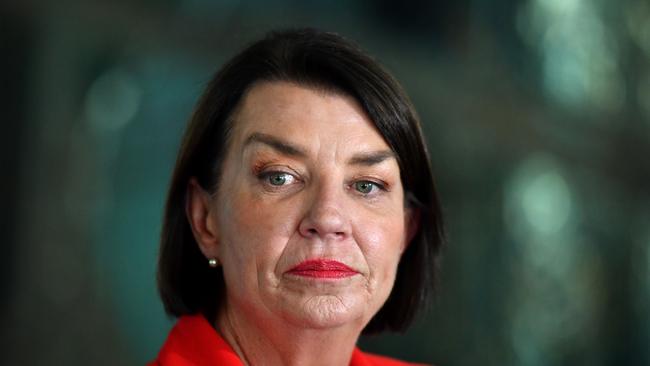Canberra to push banks on data sharing after Consumer Data Right laws pass parliament
Banks are set to be tested by unshackled customer data as new information sharing laws pass parliament.

The Morrison government has ushered the Consumer Data Right legislation across the line, with the financial services sector the first to come under the purview of the data-sharing regime.
Under CDR, consumers will have more freedom to switch financial institutions, with the flexibility to be later extended to the energy and telecommunications sector as well.
However, the immediate focus will be on the banking sector, with the data-sharing regime paving the way for open banking.
Australian Banking Association chief Anna Bligh said the legislation created the legal foundation for open banking. which would bolster competition across the industry.
“Empowering customers with the ability to use their data to drive a better deal on banking products has the potential to dramatically increase competition and foster innovation across the industry,” Ms Bligh said.
The regime will fully come into effect by the end of this month after the Australian Competition & Consumer Commission signs off on the “lockdown” version of the rules. Implementation will happen in February 2020, with the banks making credit and debit card data, as well as deposit, transaction and mortgage account data freely available.
Open banking has long been regarded as a crucial mechanism to break the stranglehold of big banks on customer data.
By giving consumers the right to share their account information with other institutions, including fintechs, it could help them secure a better deal.
While the ABA has welcomed the passage of the legislation, it was until very recently agitating to slow down the process, warning that open banking could pave the way for bolder attacks by cybercriminals.
Treasurer Josh Frydenberg and Financial Services Minister Jane Hume labelled CDR a “game changer” that would improve competition and efficiency through better access to data and lower prices to consumers.
“The regime has strict privacy and security protections and allows consumers to control what data is shared, with whom and for what purposes,” they said in a joint statement.
The Labor Party was also initially reluctant to support the legislation, citing concerns around privacy provisions, but eventually decided to support the bill after the federal election in May. Labor pushed for an amendment in the Senate giving consumers an “off switch” for data sharing. The change means consumers can determine when a company should no longer hold their data.
MoneyPlace chief executive and former Fintech Australia chairman Stuart Stoyan said that while the banks initially argued they owned their customers’ data, they have been forced to change their tune.
“They adopted the wrong mindset,” said Mr Stoyan, who is a member of the government’s Data Standards Body Advisory Committee. “It is unfortunate that the banks have approached these reforms with trepidation — open banking is not a threat, it’s an opportunity, and the paradox is that the biggest beneficiaries, after consumers, will be the big four banks.” He said CDR, in time, will empower customers in other sectors as well.
“We will see the elimination of products and services that are complicated, convoluted and rip customers off. It shouldn’t be that hard to get a credit card, mobile phone plan or energy contract that is simple, easy to understand and in your best interests,” he said. “The royal commission highlighted the deplorable behaviour of major banks, which are some of the most profitable in the world. The CDR empowers consumers.”



To join the conversation, please log in. Don't have an account? Register
Join the conversation, you are commenting as Logout